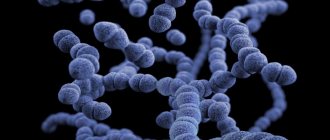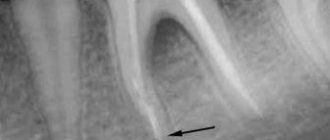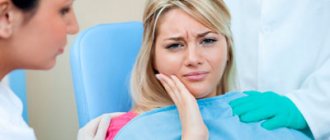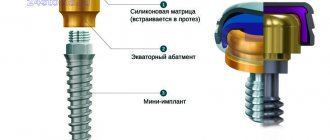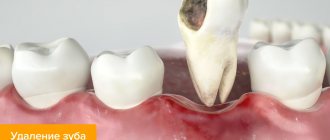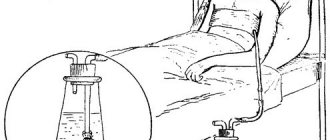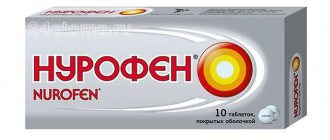The indirect toxic effect of antibiotics on the liver and biliary system is known through toxic products of the transformation of antibiotics in the body (metabolites). Some metabolites bind to liver substances (glutathione, etc.) and reduce the toxicity of antibiotic breakdown products and improve their excretion from the liver with bile. In this case, the bile may become viscous, and stagnation of bile in the gallbladder may be observed with the formation of suspension and flakes (i.e., bile sludge), which are risk factors and early signs of stone formation in the gallbladder.
Patient K., 40 years old, consulted a gastroenterologist about periodic aching pain in the right hypochondrium, heaviness after eating, and rarely bitterness in the mouth. The patient has been suffering from these sensations for several years; these sensations are provoked by long breaks in eating. Heredity is not burdened.
Effect of antibiotics. Objectively
- satisfactory condition,
- sclera and visible mucous membranes of normal color,
- the abdomen participates in breathing, is painless on palpation in all parts, gall bladder symptoms are negative,
- liver at the edge of the costal arch.
The patient is suspected of having a violation of the contractile function of the gallbladder (dyskinesia). To clarify what dyskinesia is, an ultrasound examination of gallbladder function (cholecystokinetic test) with a test breakfast (sorbitol) was prescribed.
Why does diarrhea occur after taking antibiotics?
The development of complications during antibacterial therapy in the form of diarrhea is associated with a decrease in beneficial microflora, which is involved in a complex of digestive processes:
- breakdown and absorption of nutrients from food;
- evacuation of the contents of the stomach and intestines;
- residual digestion of food;
- removal of toxins and metabolic products;
- secretion and absorption of water in the intestine;
- formation of feces, regulation of their excretion.
Even with standard antibacterial therapy, leading to a slight imbalance, side effects may occur in the form of disruption of intestinal function.
In addition, bacterial infections themselves can contribute to diarrhea, which is the basis for taking antibiotics. The waste products of pathogenic bacteria have a toxic effect, and stool liquefaction may be associated with an increase in body temperature. Antibiotics fight the underlying agent and root cause of the disease, and in many cases they are truly necessary. However, this group of medications can worsen the digestive system.
Ultrasound results
Ultrasound of the gallbladder dated January 12, 2019: the shape is irregular due to the presence of kinks in the projection of the neck and body, dimensions 63*25*25 mm. The walls are not thickened, uniform in density, single-layer. The hepatic choledochus is 3.4 mm (the norm is 6 mm), it is not traceable throughout its entire length, it is passable, the contents are heterogeneous, the walls are moderately compacted. The contours are smooth and clear. The cavity is heterogeneous due to hypoechoic fine suspension. The initial volume of the gallbladder is 18.81 cubic cm. After giving a trial breakfast at 30 minutes, the gallbladder decreased by 51%.
According to ultrasound and clinical data, it was possible to conclude that the patient has a congenital deformation of the gallbladder in the neck and body with signs of bile stagnation - dyskinesia of the hypotonic type ("flaccid" gallbladder) with the presence of hypoechoic fine bile (sludge).
Force Majeure. The effect of antibiotics on the biliary system
The study was not carried out in April, because The patient had an attack of acute appendicitis, surgery, then a two-week course of antibiotics.
After 2 months, pain in the right hypochondrium, belching, bitterness in the mouth, and intestinal discomfort began again. And only in September the patient decided to do an ultrasound of the gallbladder and consult a gastroenterologist.
On ultrasound, the cavity of the gallbladder is heterogeneous due to the presence of hypoechoic fine suspension and putty-like bile, occupying about 2/3 of the lumen of the gallbladder. The maximum contraction of the gallbladder was 25.1%.
The patient shows pronounced negative dynamics in the gallbladder, most likely associated with the course of antibiotics: the contractile function of the gallbladder has significantly worsened, the quality of bile has changed, and sludge has formed, occupying 2/3 of the lumen of the gallbladder.
Prevention of diarrhea during antibiotic therapy
To prevent diarrhea while taking antibiotics, it is important to follow several recommendations:
- strictly adhere to the dosage and treatment regimen prescribed by the doctor;
- use probiotics recommended by a specialist;
- follow a diet to prevent gastrointestinal disorders;
- maintain optimal drinking regime;
- take medications that protect the lining of the stomach and the entire digestive tract. If you have chronic ailments, you must inform your doctor about them so that he can select an individual scheme for protecting the digestive system from the effects of antibiotics.
If it is necessary to take antibiotics, it is important to take into account the body's previous reactions to antibacterial therapy. Thus, in some patients, antibiotic-associated diarrhea develops in response to exposure to a particular group of drugs or a specific agent.
Correction of treatment
Treatment was prescribed for a longer period of 3-4 months, humane tubes, ursodeoxycholic acid preparations, choleretic drugs, a diet, and therapeutic nutrition were prescribed.
Patients who already have gallbladder dyskinesia and bile sludge should protect the liver and biliary tract during antibiotic treatment and continue individual treatment based on the duration of treatment and the set of drugs after the end of the course.
The drugs Heptral, Ursosan and its analogues, Hofitol and other choleretic drugs have proven themselves well. If, after taking antibiotics, complaints of pain in the right hypochondrium or bitterness in the mouth appear, it is necessary to conduct an examination of the biliary system and carry out the required amount of treatment.
Treatment of antibiotic-associated diarrhea
Diarrhea that develops while taking antibiotics requires adjustment of the treatment regimen. You should not stop taking medications on your own; you should consult your doctor. Typically, the course of antibacterial therapy is interrupted or the drug is replaced with an antibiotic of a different group.
Normalization of digestive processes, intestinal motility and stool consistency are tasks that require an integrated approach. There are three general principles that are important for all people suffering from diarrhea after taking antibiotics:
- Nutrition correction: it is important to follow a diet. The diet should include crackers and rice water. It is important to reduce the amount of carbohydrates consumed as much as possible, and also give up milk, dairy products, baked goods, fresh vegetables, berries and fruits; legumes, pasta.
- Compliance with the drinking regime: it is necessary to drink at least 2 liters of water per day to replenish fluid loss during watery stools.
- Symptomatic therapy: the pathological process can be stopped with the help of medications.
Due to the fact that many sources of natural probiotics and prebiotics are prohibited for diarrhea, one of the key principles of treatment is the prescription of medications containing these components. Strict dietary restrictions require the use of probiotics and prebiotics for antibiotic-associated diarrhea: it is important to restore normal intestinal microflora to prevent the proliferation of opportunistic microorganisms.
In most cases, medication correction is indispensable. Remember that only a doctor can prescribe medications.
There are several groups of drugs that can be recommended for antibiotic-associated diarrhea.
Sorbents
Infectious and inflammatory diseases are accompanied by intoxication of the body, and in the process of antibacterial therapy, decay products of pathogenic microflora accumulate. Therefore, the doctor may prescribe enterosorbents - products that literally absorb toxins and harmful substances and remove them from the body.
Probiotics and prebiotics
It is important to address the root cause of diarrhea and restore normal intestinal microflora after taking antibiotics. For this, probiotics are used - bifidobacteria, lactobacilli, as well as prebiotics - a nutrient substrate to stimulate the growth of one's own beneficial microflora. Synbiotics include both probiotics and prebiotics and are widely used in gastroenterological practice.
If there is a pronounced shift in the microbial balance, the doctor may recommend intestinal antiseptics or bacteriophages - they are designed to prevent the growth of opportunistic microflora and help restore the number of beneficial microorganisms.
Enzymes
Enzyme replacement therapy is not the mainstay of treatment for antibiotic poisoning. However, preparations based on digestive (pancreatic, gastric, intestinal) enzymes stimulate the digestion of food, normalize intestinal motility and peristalsis and participate in the restoration of normal microflora of the large intestine.
Symptomatic therapy
Diarrhea is often accompanied by painful symptoms: flatulence, nausea, cramping and abdominal pain. You can quickly alleviate the condition with the help of medications. They are unable to cope with the main problem, but will bring temporary relief. Report your symptoms to your doctor, and he will select one or more remedies to improve your well-being:
- for increased gas formation - defoamers (drugs based on simethicone) or herbal carminatives;
- analgesics or antispasmodics for pain;
- Oral rehydration solutions are products designed to replenish normal fluid volume and prevent dehydration.
If diarrhea is accompanied by elevated body temperature, the doctor will select an antipyretic drug.
General strengthening agents
Weakened by an infectious or inflammatory disease, as well as subsequent use of antibiotics, the body may require complex recovery. A specialist can prescribe immunomodulators, vitamin-mineral complexes and restorative drugs.
Restrictions in food during diarrhea can also cause hypovitaminosis and lack of minerals. During long-term antibiotic therapy, it is necessary to discuss preventive measures with your doctor in advance.
Antidiarrheal drugs
If you cannot cope with diarrhea, your doctor may prescribe drugs from the following groups:
- eubiotics - live bacteria that are designed to restore the balance of intestinal microflora and restore normal digestive function;
- synthetic drugs based on loperamide: bind to opioid receptors of the intestinal wall and inhibit the release of mediators that stimulate intestinal motility;
- herbal preparations based on tannins.
Sorbents also have an antidiarrheal effect. They are natural and synthetic. Enterosorbents, entering the intestines, absorb toxins and harmful substances, contribute to the formation of stools and their reduction. It is important to remember that at least two hours should pass between taking sorbents and other drugs.
For severe antibiotic-associated diarrhea, antibacterial agents targeting Clostridium difficile or another infectious agent may be appropriate.
The drug “Fitomucil Sorbent Forte” can be used as an adjunct to relieve diarrhea syndrome. It contains inulin, a prebiotic that promotes the growth of normal microflora, as well as 5 types of probiotic bacteria. In addition, the drug contains psyllium, a natural component that helps reduce diarrhea and relieve intoxication, since it turns into a gel and absorbs toxins. The triple effect (enterosorbing, detoxifying and restorative) distinguishes Fitomucil Sorbent Forte from other sorbents prescribed for AAD. Live bacteria populate the intestines and not only help relieve diarrhea, but also improve the condition of the microflora that has been damaged by taking antibiotics.
However, to restore microflora it is not enough to take one drug.
Only a doctor prescribes specific therapy. It is necessary to stop taking uncontrolled medications and agree with a specialist on medications for symptomatic therapy.
